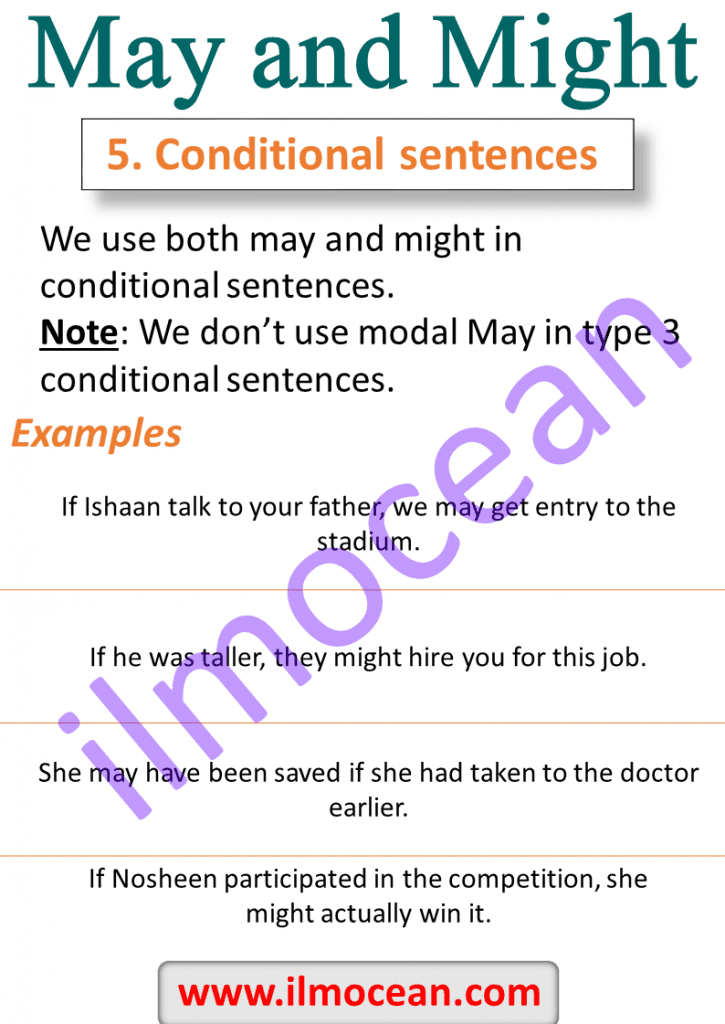May and might are used in possibility of a sitaution. May and might are almost same in meanings and in use also. May and might are used commonly in English. Here, we discuss the possibility of a situation or an event. But the meanings of these verbs are slightly different. The modal may describe possibility, and the modal might describe lower possibility of a situation.
May = likely to happen (not sure of happening)
Might = less likely to happen (highly low possibility of happening)
- Alina may get that job.
(This is positive. The probabilities of the event are actual and optimistic) - Alina might get that job.
(Not positive and not sure about it. 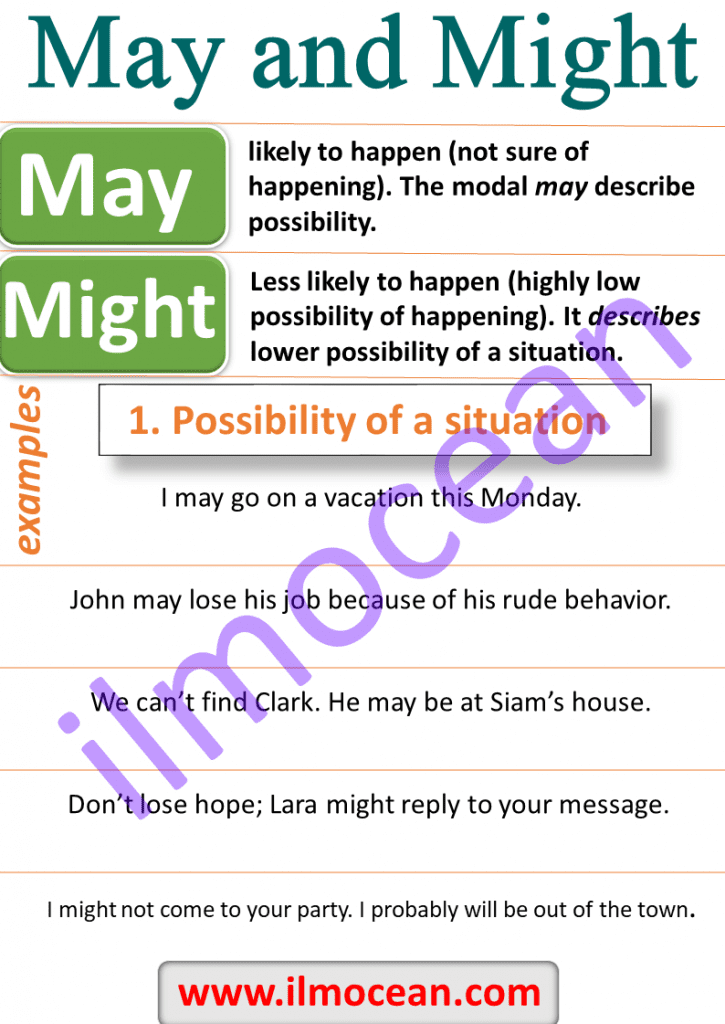
Examples:
- I may go on a vacation this Monday.
- We may lose the soccer match.
- John may lose his job because of his rude behavior.
- I might not come to your birthday party tomorrow. I probably will be out of the town.
- Don’t lose hope; Lara might reply to your message.
- We can’t find Clark. He may be at Siam’s house.
- Used For Permission
We use may and might to get permission. May is used in common sentences and might is less common but it is taken as highly formal.
Examples:
- May I join your meeting, sir?
- May I take rest here?
- May I have a piece of meat?
- Might I drink some milk from your bottle?
- Might I borrow your bike for an hour?
If we want to give permission, use may, not might.
- You may sleep now.
- If you have finished home work, you may watch cartoon.
- You may not stay here unless you pay the last two month’s rent.
- They may perform here. Colin has talked to the management already.
But sometimes use of may case of getting permission can confuse the readers. Look down the following example:
- Mark may park the car outside this bank.
Here Mark is asking for permission to park the car but this sentence refers that mark has permission to park the car. That is the problem in use of may because is refers both possibilities and permissions.
So in such confusion, use of might give clarity about the situation.
- Mark might park the car outside this bank.
Now, the situation is clear that we are referring to the possibility of the situation because we can’t use might to give permission or we cannot say that we have permission. But we can’t relax, there are two main problems in use of might:
- It is not used for positive possibility.
- We can’t use it for having or not having permission.
So, what we can do?
If we are sure about having or not having permission then we use the modal of can or could. But here we are talking about the possibility of situation. So the context of a sentence will clear the mind of your readers that you are talking about the possibility of situation not about the permission.
- Patel may park the car outside this building. It seems harmless and clean . (possibility)
- Nirmala can park the car outside this building. She has chatted to the landlord of the building already. (permission)
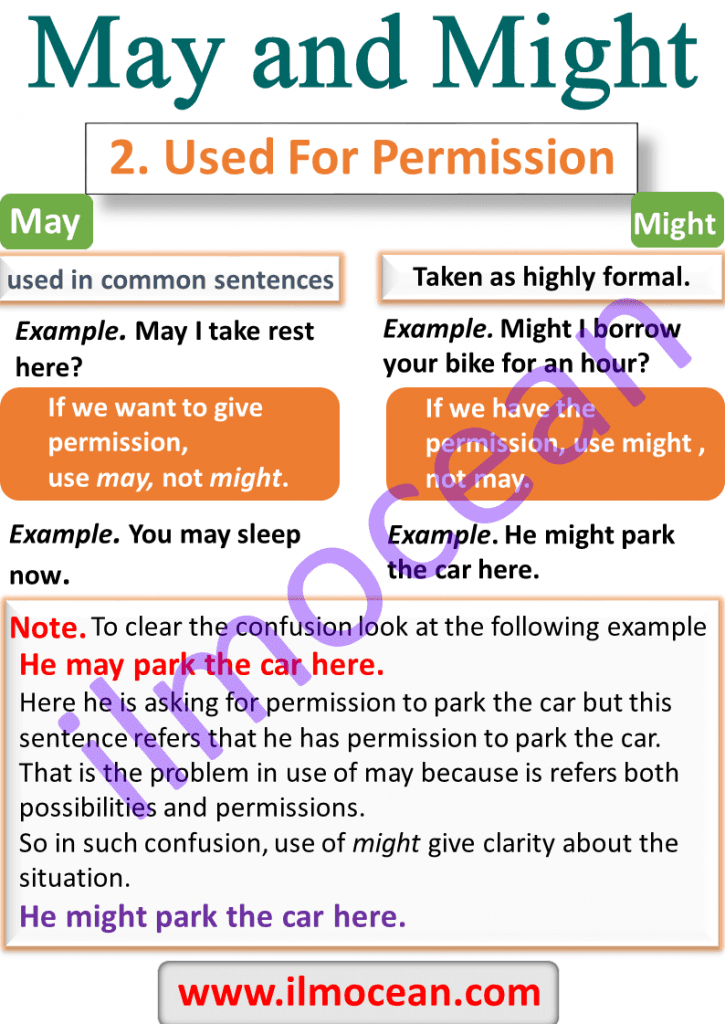
- Use in past possibility
When we talk about past possibility we use might because it refers about something that was possible in the past. May is not used in this situation, grammatically it is not wrong, but because most experts and even people like to use might to talk about a past possibility, because it gives clear picture about past possibility. Might is also considered as the past tense of may.
Examples:
- Hemight have called My phone was switched off.
- John might have left
- Imay have left the bag at your desk.
- We thought you might not join me.
- Gupta said that I might be busy.
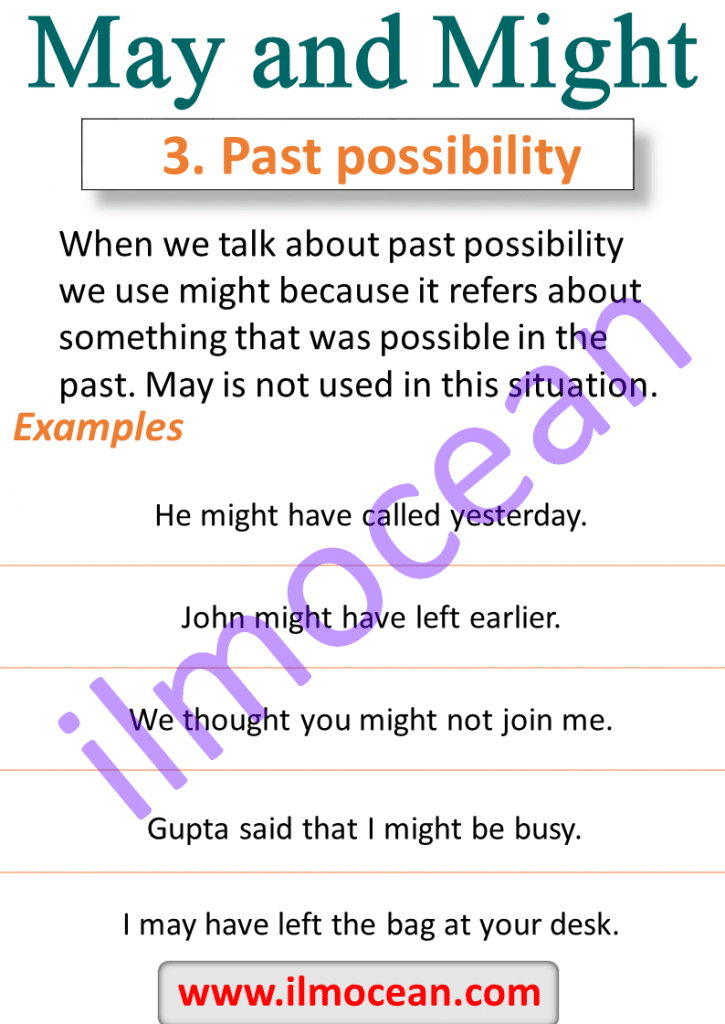
- Use in direct and Indirect speech
When may is used in the direct speech we change it in to might in the indirect speech because we consider might as the past tense of may.
Examples:
- Direct: Clark said, “She may be upset with you.”
- Indirect: Clark said that she might be upset with me.
- Direct: Jackob told me, “Elisa may call you tonight.”
- Indirect: Jackob told me that Elisa might call me that night.
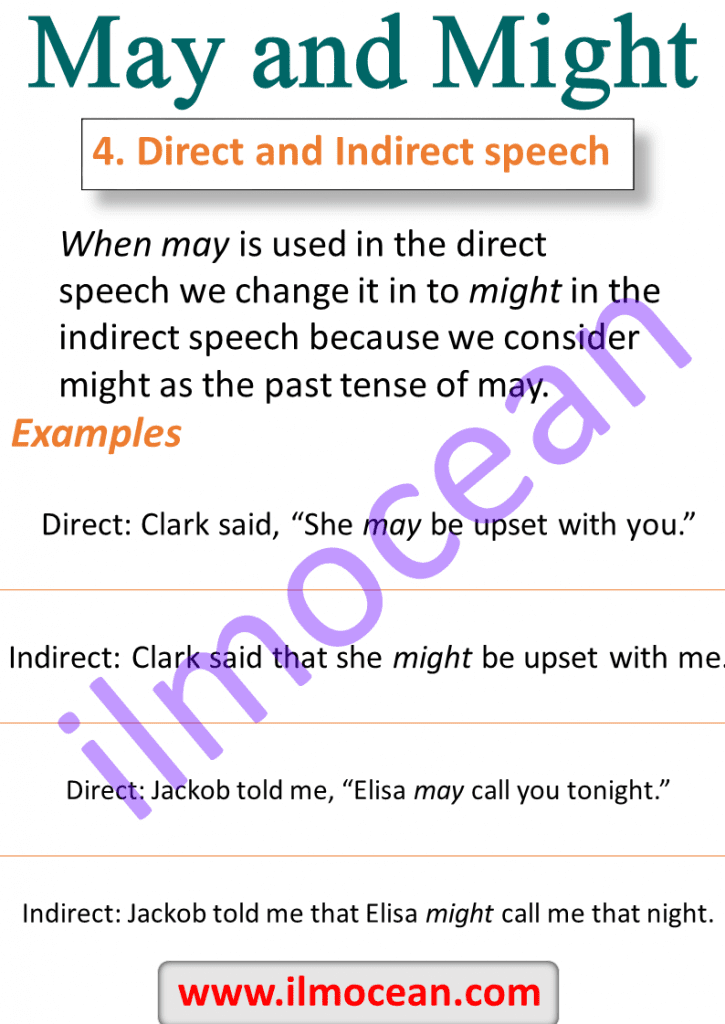
- Use in conditional sentences
We use both may and might in conditional sentences.
Examples:
- If Ishaan talk to your father, we may get entry to the stadium.
- If he was taller, they might hire you for this job.
- She may have been saved if she had taken to the doctor earlier.
- If Nosheen participated in the competition, she might actually win it.
- If Ahmad explain everything to his father honestly, he might forget him.
- If James had apologized to her, she might have forgotten
Note: We don’t use modal May is in type 3 conditional sentences.
Download PDF here may might pdf

